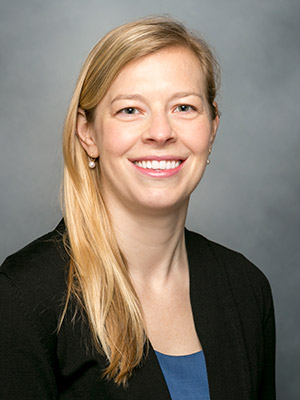
As we move from a pandemic to an endemic, the hardships caused by food insecurity persist in our country. Over 29 million adults and 12 million children struggled to afford food in 2021. This issue disproportionately impacts minority populations with roughly 8.7 million Black and Latinx children living in food insecure households. Federal policies included in the Families First Coronavirus Response Act and the American Rescue Plan were critical to supporting food assistance programs by providing billions of dollars in aid to help address hunger and close the meal gap.
In February, Pam Schwartz, executive director of Community Health at Kaiser Permanente, joined leaders from the health care, business, and policy fields to discuss the growing Food is Medicine movement. The congressional event, Food is Medicine: Spotlighting the Power and Innovation of the Private Sector to Improve Nutrition, was hosted by the U.S. House of Representatives Hunger Caucus in collaboration with The Gerald J. and Dorothy R. Friedman School of Nutrition Science and Policy at Tufts University.
I sat down with Pam following the event to get her impressions of the briefing and unpack the emerging role that health care plays in addressing nutrition and food insecurity.
First off, what is Food is Medicine?
Food is Medicine (FIM) refers to a spectrum of services and health interventions that recognize and respond to the critical link between nutrition and chronic illness. It’s well-established that food insecurity is directly correlated with poor health, including higher rates of chronic disease, such as diabetes, hypertension, and heart disease – among others.
When we deploy a FIM intervention, we try to prevent or actively address these health issues in our members. Kaiser Permanente, and the health care sector in general, is uniquely positioned to stand up FIM interventions and help change an individual’s health trajectory.
With that definition as a foundation, how does this work relate to what Kaiser Permanente is doing to address food insecurity for its members and communities?
One key role that health care can play is to build the evidence base and business case for effective FIM interventions. This has been a big part of what we are doing on my team.
We are trying to combine existing evidence, a member’s lived experience, and best practices – and where the evidence doesn’t exist, Kaiser Permanente can leverage its size, scale, research, and data capabilities to really understand the impact on health and cost of care.
It sounds like health care can play a critical role in identifying and examining effective member interventions. For you personally, why is this work meaningful?
I am honored to play even a small role in building the evidence for these interventions and developing solutions informed by member and patient experiences and feedback. Their voice is the heart of this work and I enjoy lifting up those individual perspectives. Also, I feel proud to work for an organization that believes all people have a right to nutritious, affordable food in order to live their best lives.
What gets you up in the morning? What makes you most excited about this work?
Right now, I’m most excited about three promising FIM interventions that connect directly with our members:
- In 2020, we started a Supplemental Nutrition Assistance Program (SNAP) enrollment program that has reached over 4 million members and helped over 95,000 members across seven states and D.C. apply for SNAP benefits.
We also developed an interactive, low-cost texting campaign to help our members apply for SNAP – this included phone support for those who needed extra assistance. This came at an important time, right before the pandemic hit, and we were able to quickly accelerate and scale our efforts.
- Also in 2020, we initiated four Medically Tailored Meals (MTMs) studies for members with nutrition-impacted chronic conditions, such as diabetes and kidney disease. We just completed the data collection with over 2,100 patients receiving almost 120,000 meals.
The idea behind this approach is that it supports healthy eating after a patient is discharged, and helps these patients to stay safe at home during their recuperation. This program has taught us a lot about MTM delivery, consumer preferences, and how to maximize impact in future iterations of the program.
- In 2021, we launched a study to test Produce Prescriptions (Produce Rx) by providing healthy food access and nutrition education to people with diabetes who are food insecure in California. To date, we have provided over 300 food boxes to our patients to support their recovery and transition home.
The Congressional event was designed to spotlight private sector innovations aimed at addressing nutrition and food insecurity. What do you hope to see government leaders do to support and move this work forward?
While we are committed to building the evidence base and business case for these interventions, it is also beneficial for policymakers to develop evidence-based public policies that address food insecurity. We believe that more evidence is needed for the health care sector to understand how to deploy the most impactful FIM interventions. At the federal level, we would love to see more evidence developed for FIM programs to help us and other health care systems fully embrace these interventions.
We have been trying to better understand what works and under what conditions so that we can have the greatest impact on health care, all with equity in mind. For example, as we create initiatives that support SNAP or WIC enrollment, we engage individuals with food insecurity to understand their barriers to enrollment. To that end, we’d like to see more federal and state efforts to streamline the application and enrollment process across all nutrition assistance programs, including resources to support state level eligibility system improvements. In addition, other efforts to support long term program simplification could include making permanent some flexibilities allowed during the pandemic, such as reducing face-to-face interviews, simplifying verification requirements, and lengthening certification periods.
Thank you for your time, Pam. Kaiser Permanente has worked to expand its Food is Medicine programs to help support the health of our members and communities. As we look beyond the pandemic, we want policymakers to join us in supporting and expanding critical food assistance programs, along with building momentum for Food is Medicine interventions. If you are interested in a recording of the Congressional event, please check it out here.

